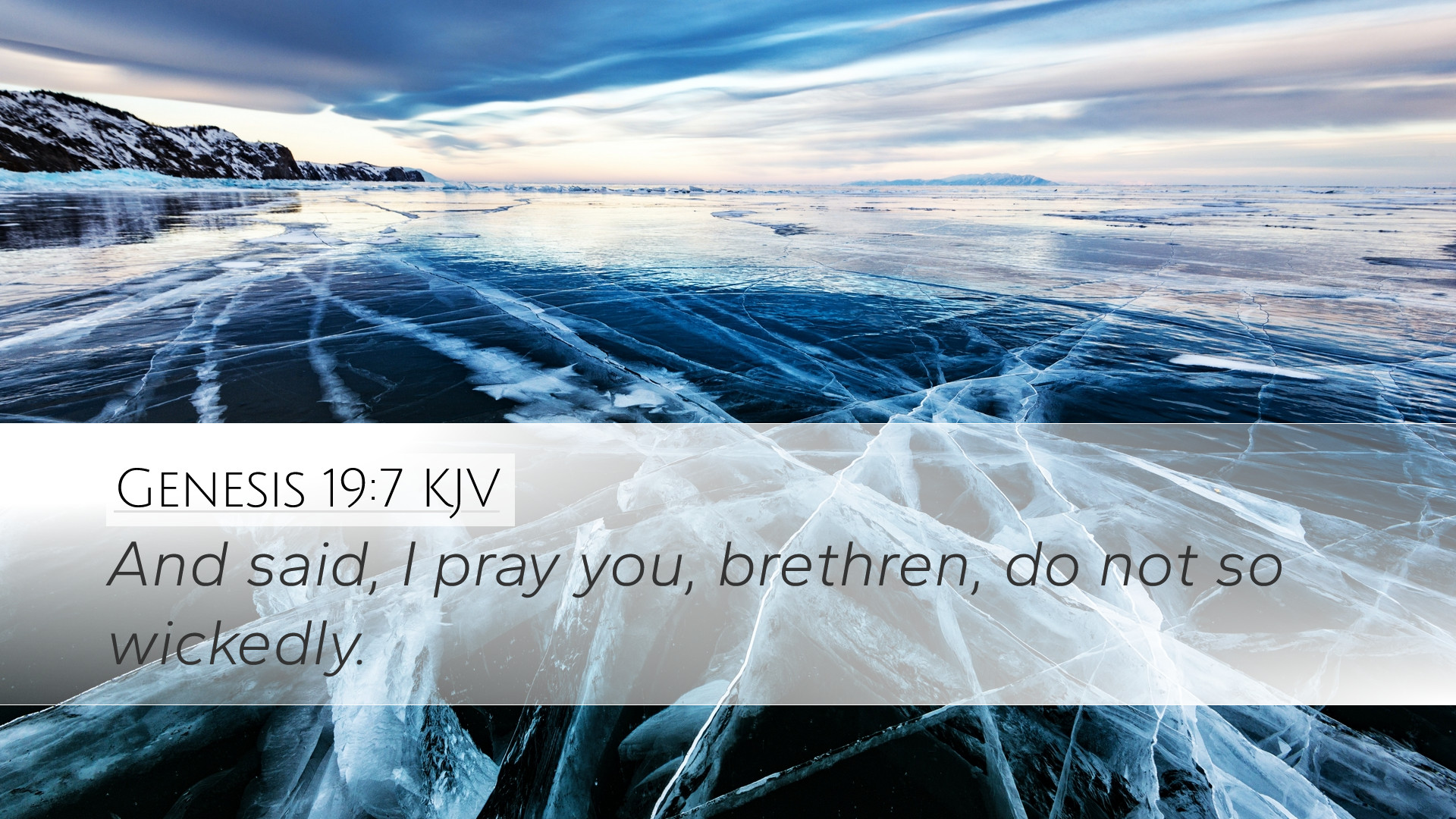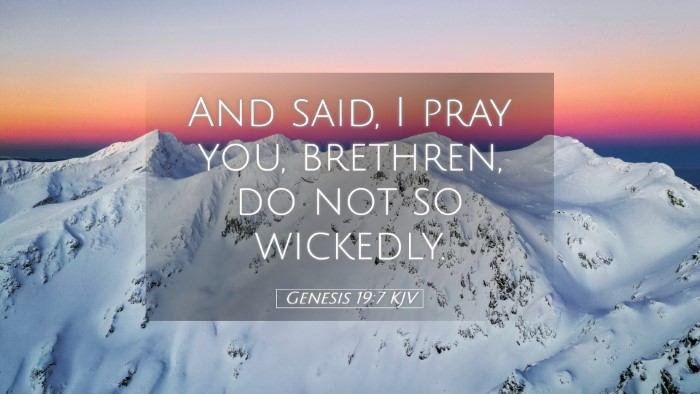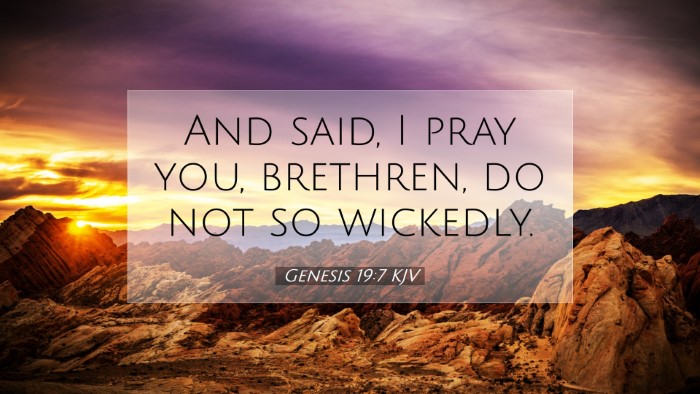Bible Commentary on Genesis 19:7
Genesis 19:7 records a pivotal moment in the narrative of Sodom and Gomorrah, showcasing Lot's distress over the impending violence against his guests. This passage is rich in ethical implications and theological reflections, making it significant for pastors, theologians, and students of the Bible.
Contextual Background
Before delving into the specifics of Genesis 19:7, it is essential to understand the surrounding context. The chapter presents the moral degradation of Sodom and Gomorrah, cities infamous for their wickedness. The arrival of the angels in the form of men emphasizes both divine righteousness and impending judgment. Lot's position as a city dweller who retains a degree of hospitality and righteousness stands in stark contrast to the depravity of the Sodomites.
Text of Genesis 19:7
Genesis 19:7 (NIV): "He said, 'No, my friends. Don’t do this wicked thing.'
Verse Analysis
1. Lot's Warning Against Wickedness
Lot's admonition to the mob encapsulates a moral response amidst chaos. Matthew Henry remarks on the clarity and immediate recognition of the wicked intentions of the Sodomites. Lot, possessing a discernment not entirely shared by his neighbors, issues a challenge against their immoral desires, illustrating an ostensibly futile stand for righteousness in a corrupt society.
2. The Ethical Dilemma
Albert Barnes reflects on the grave ethical implications inherent in Lot's reaction. The societal pressure surrounding him is palpable, and one can sense the tension within Lot as he attempts to protect his guests while also navigating the moral climate of Sodom. This situation raises difficult questions about the nature of morality and the lengths one might go to uphold one's ethical convictions in the face of overwhelming opposition.
3. Lot's Role and Character
Lot's character is pivotal in understanding this narrative. Adam Clarke notes that Lot, having previously made choices that led him to Sodom, now grapples with the consequences of those choices. His ownership of the situation signifies a moment of redemption; however, it can also be viewed as a recognition of his moral failing. This duality invites readers to examine their own lives and the complexities of living in a world that often opposes godliness.
4. The Cultural Context
When situating Lot’s cry within his cultural context, it is important to recognize the conventions of hospitality in ancient Near Eastern societies. The protection of guests was paramount, and Lot's actions underscore the stark difference between his values and the host society's. Herein lies an invitation for readers to explore how cultural norms can sometimes conflict with ethical imperatives.
Theological Implications
1. Divine Justice
The broader narrative serves to highlight a theology of divine justice. Lot's plea is not merely an expression of personal concern—it is intertwined with God’s impending judgment. Matthew Henry beautifully articulates that Lot, even if imperfect, serves as a conduit for awareness of wickedness and the necessity for divine intervention.
2. The Role of Intercession
Lot's position as an intercessor, albeit limited and fraught with fault, gestures towards a greater biblical theme of intercession. His struggle reflects the tension between justice and mercy, inviting pastors and scholars to ponder how these dynamics play out in the lives of believers today.
Practical Applications
- Righteousness in the Face of Evil: Genesis 19:7 encourages modern believers to stand firm in their convictions, even when surrounded by pervasive immorality.
- Understanding Consequences: Lot's story acts as a cautionary tale about the consequences of choices and the importance of discerning our surroundings.
- Value of Hospitality: The passage reiterates the need for hospitality as a reflection of divine grace—highlighting the importance of treating others with dignity and care.
- Ethical Courage: Understanding the necessity for ethical courage in the face of societal pressures, challenging individuals to advocate for righteousness.
Conclusion
Genesis 19:7 serves as a profound reminder of the need for ethical fortitude amid a world that often reflects the chaos of Sodom. Lot's plea encapsulates core themes of righteousness, hospitality, and the moral struggles that define the human experience. By weaving together insights from various commentators, we gain a richer understanding of this critical passage and its implications for faith and practice in our contemporary world.


